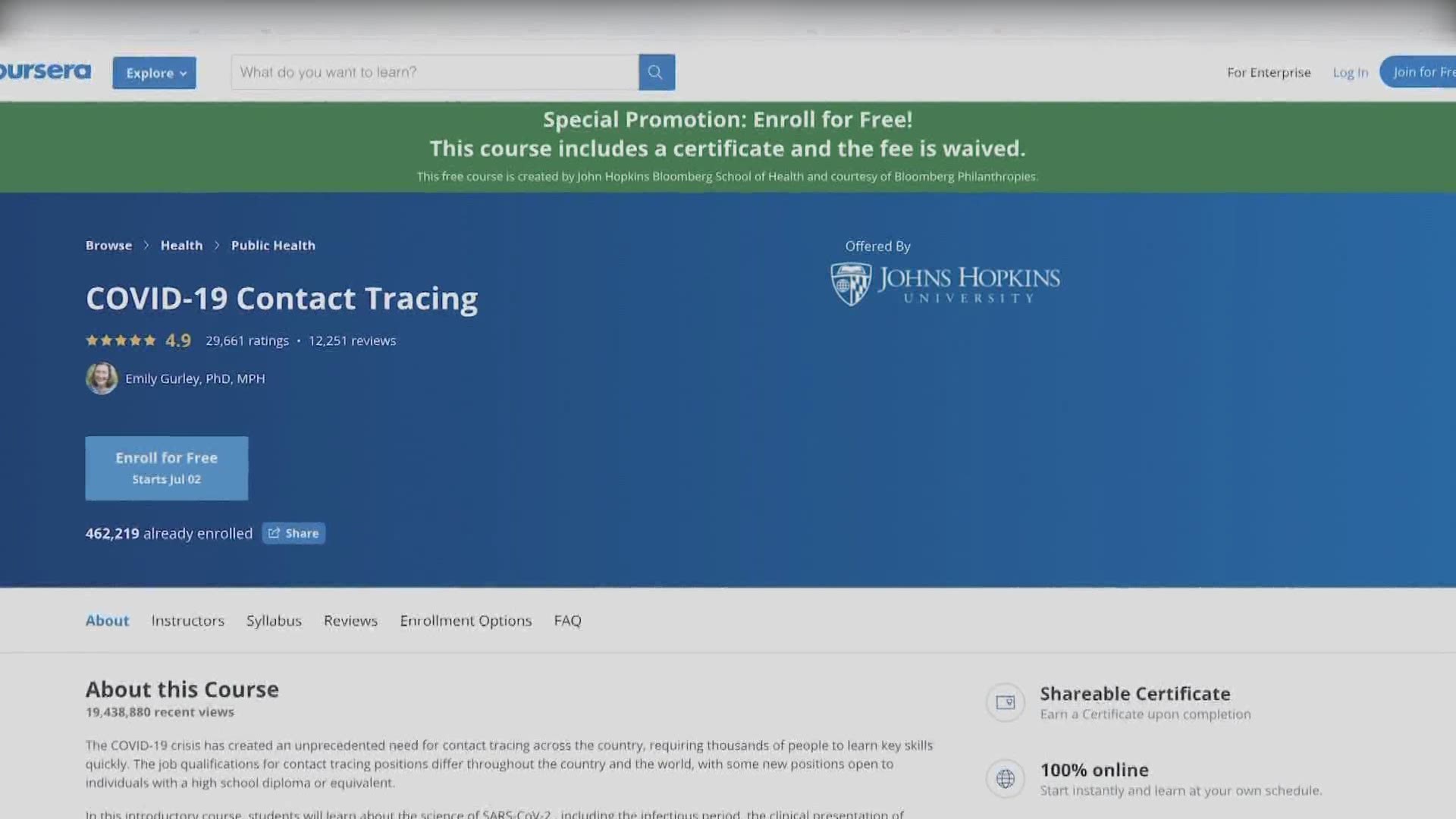MARION, Iowa — Zhen E Rammelsberg is out of a job due the pandemic. The massage therapist has only owned the business for three years before COVID-19 hit.
But now, the pandemic’s the reason there’s a bigger need for the job she just trained for.
"We’re shut down," Rammelsberg said. "But because I’m on unemployment, they had free courses through Coursera for contact tracing."
Rammelsberg, who lives in Marion, Iowa, is now joining a slew of others across the U.S., becoming a certified contact tracer.
They’re the people who make calls to positive COVID-19 patients, taking notes on a form provided by the Iowa Depaertment of Public Health and asking who else they have been in contact with before their positive test results came in.
"If they got together with a small group of people it’s easy to get a hold of these people," Rammelberg said.
Then, tracers reach out to those people and let them know they’ve been around a COVID-19 positive patient.
But due to HIPAA laws, they can’t say who it is.
"A lot of the training is teaching you verbiage to not freak people out," said Rammelsberg. "Because most people’s general reaction is kind of panic."
Heather Meador, the clinical branch supervisor with Linn County Public Health, said as the state opens up, it’s getting harder to pinpoint every potentially infected person.
Things like social justice protests, restaurants reopening, and high school summer sports mean more crowds during the summer.
"That’s what we want to remind the public about is that we have community spread here in Iowa," Meador said. "So community spread means you’ve gotten it from somebody and you don’t know who that person is. We won’t be able to reach out to individuals that you don’t know."
Over in Plymouth County, they now have the highest positivity rate in Iowa. More than 13% of the COVID-19 test in that county are positive, which is higher than the national average.
The Public Health administrator, Tara Geddes, said not all people are willing to share who they have come into contact with.
"With school sports starting back up, we've been getting a lot more resistance from people who don't want family members or children excluded," said Geddes over the phone.
Ultimately, Meador says the calls to find out who you've been around are about protecting the community around you.
"The person may also have mild to moderate symptoms and be fine...but who were they around?" said Meador. "They may have underlying health conditions. They may be someone that's older. And that person may be the one that ends up in the hospital. Or that person may be the one that ends up dying."

